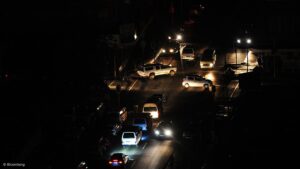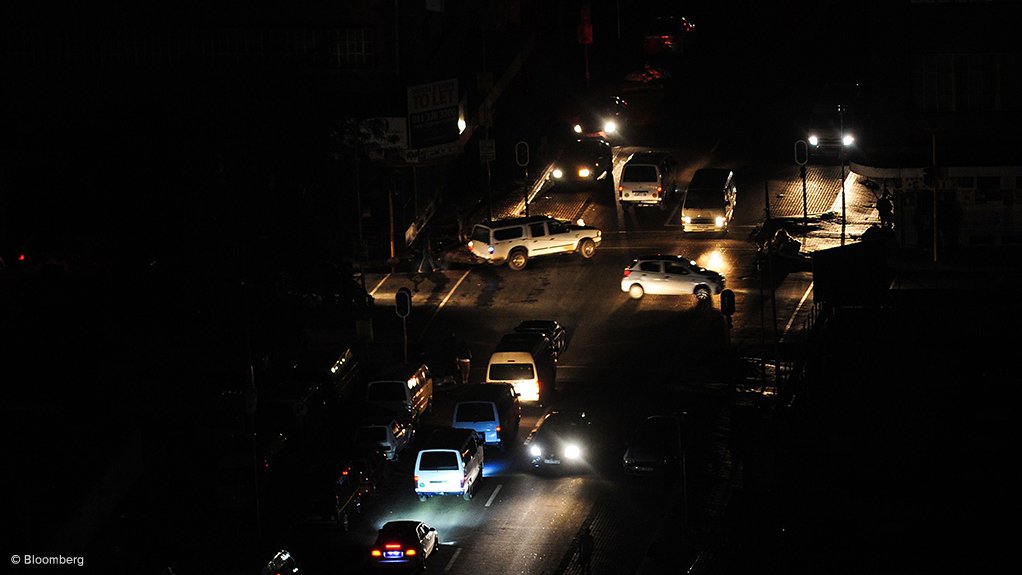Understanding Zambia’s Energy Crisis
Zambia is currently grappling with a significant energy crisis, predominantly driven by prolonged drought conditions that have been worsened by the El Niño weather phenomenon. This climatic event has resulted in markedly reduced rainfall, which, in turn, has led to critically low water levels in the Kariba Dam. As the primary hydroelectric power source for the country, the diminished capacity of the Kariba Dam has grave implications for Zambia’s energy production.

Hydropower significantly contributes to Zambia’s energy supply, accounting for over 90% of the nation’s electricity generation. However, the persistent drought has led to a drastic reduction in power generation capacity, leaving the country unable to meet the growing energy demands of its population. Consequently, this has resulted in an increase in the frequency and duration of blackouts across both urban and rural areas. On any given day, households and businesses experience power outages that can last for several hours, disrupting everyday life and operations.
The impacts of this energy crisis are far-reaching. Daily routines are interrupted, and the reliability of essential services such as healthcare is compromised. Businesses, particularly those reliant on uninterrupted power supply, face significant challenges, leading to decreased productivity, financial losses, and, in some cases, the closure of operations. Furthermore, rural communities, which often lack alternative energy sources, find themselves especially vulnerable, exacerbating socio-economic disparities.
In essence, the energy crisis in Zambia not only threatens the stability of the nation’s economy but also the well-being of its citizens. Addressing these challenges will require concerted efforts and innovative solutions, particularly in diversifying energy sources and enhancing infrastructure to mitigate the impacts of future climatic events.
Impacts of the Energy Crisis on Daily Life
The energy crisis in Zambia has far-reaching implications that significantly disrupt daily life. Households are increasingly facing challenges due to unpredictable electricity availability, which  affects their day-to-day routines. Many families have come to rely heavily on electricity for essential tasks such as cooking and heating. However, as power outages become more frequent, the inability to prepare meals or maintain a comfortable living environment has put considerable strain on households, particularly during extreme weather conditions. The reliance on candles or alternative fuels for cooking and lighting not only increases household expenses but also raises safety concerns associated with their usage.
affects their day-to-day routines. Many families have come to rely heavily on electricity for essential tasks such as cooking and heating. However, as power outages become more frequent, the inability to prepare meals or maintain a comfortable living environment has put considerable strain on households, particularly during extreme weather conditions. The reliance on candles or alternative fuels for cooking and lighting not only increases household expenses but also raises safety concerns associated with their usage.
The business sector has similarly encountered difficulties as a direct result of energy shortages. Companies depend on reliable electricity to operate machinery, manage inventories, and serve customers. Frequent disruptions force businesses to halt operations, leading to decreased productivity and loss of revenue. Small businesses, in particular, struggle to remain viable in the face of these energy shortages, often resulting in layoffs or closures. As businesses scale down, the ripple effects impact the economy, limiting job availability and reducing consumer spending.
Moreover, the crisis adversely affects essential public services like healthcare and education. Hospitals and clinics depend on a stable power supply to keep medical equipment operational and medicines at the correct temperatures. Interruptions in power can jeopardize patient care, hinder emergency services, and delay essential medical procedures. In educational institutions, the lack of electricity hampers learning, making it difficult for students to access digital resources or study effectively during the evenings. Overall, the energy crisis undermines economic activity, resulting in a decline in overall quality of life for citizens in Zambia. As the situation persists, the socio-economic fabric of the nation faces increasing strain, highlighting the urgency of addressing energy challenges effectively.
Introducing Mupundu Energy and Its Objectives
Mupundu Energy emerges as a significant player in the quest to address Zambia’s pressing energy crisis through its innovative methods of electricity generation. The company focuses on harnessing the potential of anaerobic digestion, a process that effectively converts organic waste into renewable energy. This approach not only provides a sustainable energy source but also promotes waste management practices in the communities surrounding its operations.
The mission of Mupundu Energy extends beyond merely generating power; it aims to create an integrated energy solution that benefits both the environment and the economy. By using locally sourced organic materials, Mupundu Energy supports local farmers and businesses while reducing reliance on traditional fossil fuels. This commitment to local sourcing underscores the company’s dedication to sustainable development, aligning with global efforts to combat climate change and promote cleaner energy alternatives.
Operationally, Mupundu Energy adopts a dual model that is pivotal in enhancing Zambia’s energy landscape. The company will not only contributes electricity to the national grid via the Zambia Electricity Supply Corporation (ZESCO) but also will engage in supplying power directly to private off-takers. This strategic approach ensures a broader distribution of energy, making it accessible to both large-scale consumers and smaller enterprises. By doing so, Mupundu Energy plays a crucial role in stabilizing electricity supply, which in turn fosters economic growth and improves the quality of life for many Zambians.
Through its innovative practices and dual supply model, Mupundu Energy stands out in Zambia’s energy sector, addressing critical energy shortages while promoting a sustainable future. This multifaceted role positions the company as a key player in the efforts to innovate and transform Zambia’s energy resources for the betterment of its citizens.
Mupundu Energy’s Solutions and Future Prospects
Mupundu Energy is at the forefront of addressing Zambia’s pressing energy crisis through innovative solutions that leverage renewable sources. One of the primary strategies employed by Mupundu Energy is anaerobic digestion, a process that converts organic materials into biogas. This technology not only provides a reliable source of sustainable energy but also helps in waste management, turning agricultural and organic waste into a valuable resource. By harnessing biogas, Mupundu Energy aims to contribute significantly to Zambia’s energy mix, enhancing energy security and reducing dependency on non-renewable sources.
The introduction of anaerobic digestion has the potential to positively impact the national grid by providing a stable and decentralized energy supply. This means that rural and underserved communities that currently struggle with unreliable power access could benefit from a more consistent energy service. The increased generation capacity from biogas systems can alleviate the stresses on the national grid, allowing for better distribution of electricity throughout the country. In addition to improving energy supply, Mupundu Energy’s initiatives will likely lead to job creation and support local economies, fostering sustainable development in various regions.
As Mupundu Energy progresses, it faces certain challenges that may impede its growth and impact. These include regulatory hurdles, funding constraints, and the need for technical expertise to implement advanced technologies effectively. Moreover, public awareness and acceptance of renewable energy solutions remain crucial for the success of such initiatives. However, with a clear commitment to sustainability and innovation, Mupundu Energy is poised to play a vital role in Zambia’s long-term energy strategy. By overcoming these challenges and focusing on expanding its biogas capabilities, Mupundu Energy can significantly contribute to the resolution of Zambia’s energy crisis while paving the way for a greener future.
Image Credits: Images used in this post are credited to ZNBC. © ZNBC. All rights reserved. Efforts are ongoing to obtain explicit permission for use.





